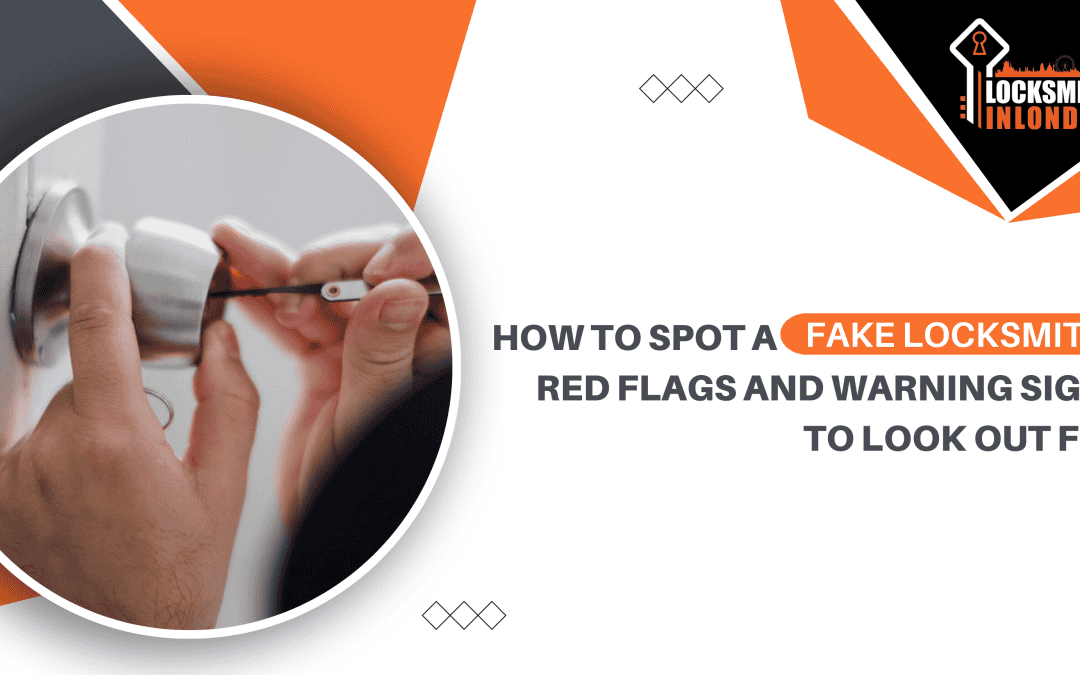Being locked out of your house or car can be a frustrating situation. A trustworthy locksmith can offer crucial aid in such circumstances. However, not all locksmiths are reliable, and regrettably, some dishonest people pass for real experts.
These “fake locksmiths” might rip you off, charge you too much, or even jeopardize your security. Before you fall for their tricks, you must learn how to recognize these con artists. In this post, we’ll look at the warning indicators and cautionary tales that might help you spot a fraudulent locksmith and guard against stumbling into their traps.
1. Lack of Proper Credentials
A trustworthy locksmith needs to have the appropriate qualifications that attest to their skill and expertise. Proper identification should be among your priorities.
Ask the locksmith to show you their identification and license when they arrive at your location. A trustworthy locksmith will be happy to show you their qualifications. Make sure the license is legitimate and current by giving it a close inspection.
Reputable locksmiths are frequently members of groups or professional organizations in the field. They might advertise memberships or emblems on their website or car. If you have any reservations, look into these affiliations and confirm their legitimacy.
2. Vague or Generic Advertising
Their vague or generic advertising is another trait shared by fake locksmiths. Scammers frequently use generic names, numbers, or incorrect addresses when creating false web listings.
To appear official, they might even use the names of well-known locksmith businesses. Take note of the specifics in their marketing. A warning sign is when something seems strange or when the information isn’t clear.
To increase their potential clientele, fake locksmiths frequently use fictitious addresses or make claims about having locations in several cities.
Verify the validity of their address or other contact details by doing some investigation. An authentic physical address and a nearby phone number are indicators of a reliable locksmith.
3. Excessive Charges and Unreliable Quotes
One of the most important red flags of a fake locksmith is their propensity to overcharge unwary clients. Once they are on the scene, scammers frequently employ misleading techniques to raise the fee.
They can assert that the task is more difficult than was previously thought or tack on extra fees for supplies or labor.
Ask for a thorough price that covers all potential fees before letting a locksmith get to work. A reliable locksmith will offer a precise quotation based on the circumstances.
Proceed with caution if the quote seems excessively exorbitant or if the locksmith is reluctant to give you a written estimate.
4. Unmarked or Unprofessional Vehicles
Genuine locksmiths typically show up in company cars bearing the name, emblem, and contact details of their business. Building trust and professionalism through branding.
Fake locksmiths, on the other hand, can show up in unmarked or generic automobiles with no obvious identity. Their absence of branding makes people question their reliability.
Keep a watchful eye on the vehicle for any indications of professionalism or a lack thereof. Genuine locksmiths present themselves and take delight in their work.
A big red flag that a locksmith might not be who they claim to be is if their vehicle comes off as unprofessional or inconsistent with their advertising.
5. Seeks Upfront Payment
Fake locksmiths frequently demand payment from you as soon as they get to the job site and even before they start working. This is almost always a huge red flag and a trick that locksmith scammers use frequently.
Once they receive the money, the con artists either stealthily make their getaway without doing any work or perform a shoddy service that is unquestionably not worth the money they stole from your wallet.
Your chances of obtaining that money back are probably minimal once it is in their hands. In light of this, it is strongly advised that you pay the locksmith only after they have completed the service.
You can guard against having your money spent on a scam by refusing to pay the locksmith in full up ahead, especially if it is a sizable amount.
6. Offers a Suspiciously Low Price
On the other side, if the price is so low that it seems unreasonably low, it is probably a sign that the deal is unreal. Since low costs are sure everyone’s top goal when picking a service, scam locksmiths frequently quote a low price to persuade consumers to hire them. This will be a different scenario once they get there.
Once they are finished with their task, they will raise your total bill, which is how the locksmith scam operates. They’ll offer justifications and charge much more than you initially agreed.
7. Lacks Reputable Reviews
It’s imperative to read through a locksmith’s customer testimonials. A lack of reviews does not necessarily mean that the business is fraudulent; it could just be new to the market or not yet well-known. However, you should exercise caution because it’s important to have references you can trust.
Even if the business displays customer reviews on its website, you should confirm that these are authentic. Customer testimonials on their website don’t amount to proof on their own.
What you should watch out for is whether the company processes its evaluations using a third-party service like TrustMate that imposes rules to avoid fraud.
8. EVADE QUESTIONS
A Fake locksmith will avoid your inquiries, even if they are as simple as, “Where is your office?”
If they provide you with an address, you ought to spend a few minutes looking up the area on Google Maps. However, exercise caution because it has happened in certain cases where the phone book-listed business turned out to be a scam.
Conclusion
Finding a fake locksmith can result in a variety of problems, including wasted money and decreased security. Knowing the warning indicators to watch out for will help you avoid being a victim of these con artists.
Always request adequate identification and confirm that credentials are updated. Examine their advertising for any contradictions or ambiguous statements.
Watch out for inflated prices and faulty estimates. Lastly, consider how their automobiles are presented. You can secure your safety and peace of mind by always being alert and knowledgeable.

